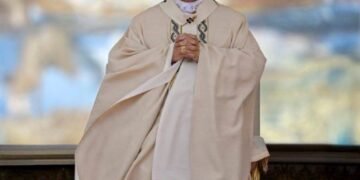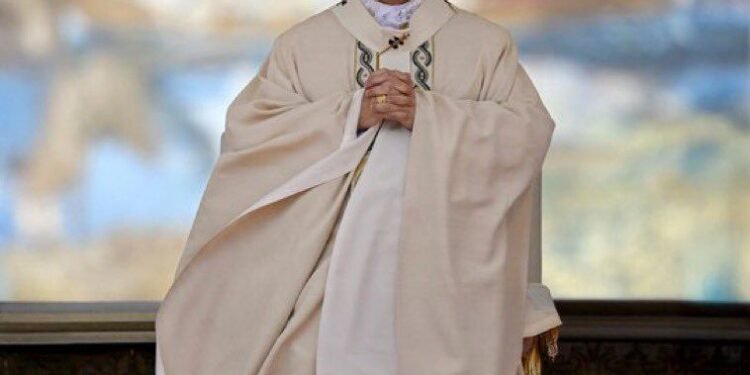By Charles Igwe
On August 4, Lebanon solemnly marked the fifth anniversary of the devastating port explosion in Beirut—an event that claimed 245 lives, injured 6,000 others, and left deep scars on the collective memory of the nation. In the heart of the tragedy’s most impacted neighborhood, Karantina, families of the victims joined a silent march, shared painful recollections, and witnessed a living memorial: 75 trees planted along the road to the port, each bearing the name of a life lost that day.
Pope Leo XIV extended his solidarity to the Lebanese people through a heartfelt message delivered via Vatican Secretary of State, Cardinal Pietro Parolin. Addressed to those gathered at the vigil and read aloud by Apostolic Nuncio Archbishop Paolo Borgia, the Holy Father’s words resonated with compassion and hope: “Christ’s tears are joined with our own in the face of loss and suffering,” he said, affirming that the Church mourns alongside Lebanon and keeps the nation at the center of its prayers
The gathering in Beirut reflected both grief and resolve. As testimonies poured forth, the mood shifted toward remembrance and advocacy: Lebanese families reiterated their demand for truth and justice in the ongoing, yet inconclusive, official investigation. The apostolic nuncio reminded onlookers that this pursuit remains delicate and complex, but essential—and that glimmers of progress in the probe offer cautious hope.
In an emotional act of commemoration, the square before the Church of Our Lady of Deliverance hosted silent prayers and shared suffering. Families and survivors spoke intimately of trauma, while a procession to the garden beside the port silently conveyed what words could not—grief transformed into steadfast longing for healing and accountability.
Across the globe, Pope Leo XIV’s message affirmed that Beirut’s tragedy is not in Lebanon alone: it is a wound carried by the universal Church. His declaration—“Death does not and will never have the last word”—offered a spiritual embrace to a nation battered by disaster, political instability, and economic collapse. Echoing decades of papal concern for Lebanon, the message projected confidence in truth, reconciliation, and divine consolation for a land still grieving but not forgotten.







































